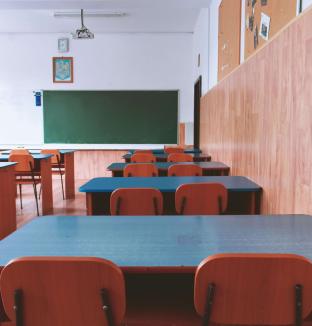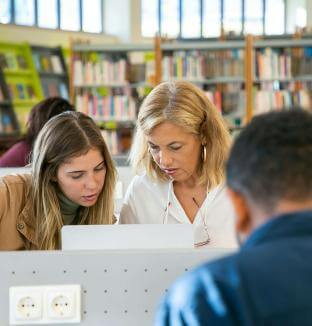Young people's mental health: schools on the front line
According to the EnCLASS 2022 survey conducted in France[1], the well-being of students is deteriorating over the years, and this deterioration is even more pronounced at lycée. Nearly one in four secondary school pupils say they have had suicidal thoughts in the last 12 months, and more than one in 10 have attempted suicide at least once in their lives. Faced with these alarming facts, Patrice Huerre, psychiatrist and consultant with the emeis Group, works in around fifteen clinics equipped with child psychiatry units. He is also working with the French education system, training teachers, counsellors and headteachers to better detect and support young people in distress.
School: an indicator of teenage malaise
While school is not the only cause of psychological disorders, it is often the indicator. Obsessive-compulsive disorders, eating disorders or anxiety at school are warning signs that are sometimes difficult to identify: "A good pupil may be in great psychological distress, just as a pupil who is failing at school may be doing well. That's what makes detection more complex," explains Patrice Huerre.
What's more, the resources dedicated to supporting these pupils in distress remain inadequate. School nurses deal with thousands of pupils, school doctors are understaffed and counsellors, who are on the front line, are overwhelmed.
Patrice Huerre nevertheless tempers the idea of an explosion in psychiatric disorders among young people: "What is changing is above all adults' sensitivity to these issues. Society projects its anxieties onto young people, which amplifies the climate of anxiety. Some teenagers react more strongly than others and go through periods of fragility, even psychological distress, which need to be treated. But these difficulties can generally be overcome. On the other hand, the proportion of young people suffering from serious mental illnesses has remained stable for several decades".

Peel off the labels to allow students to flourish
One of the keys to improving young people's well-being is to help them develop a more positive self-image. "A simple change of wording can make a world of difference: instead of telling a pupil that he's rubbish after a bad mark, you can tell him that he's handed in a bad paper. Replacing the verb 'to be' with 'to have' prevents them from defining themselves by their failures," explains the expert.
Social media amplifies this phenomenon by freezing school reputations, making the right to forget more difficult and limiting the possibility of evolving from one year to the next. Faced with this challenge, schools have a crucial role to play: avoid reinforcing these labels and, on the contrary, encourage each student to evolve.

A widening gap between schools and young people
In the digital age, young people have instant access to information, while schools are struggling to change their teaching methods, which are often inherited from the 19th century. While some see digital technology as a threat, others see it as an opportunity to reinvent learning and a powerful lever for modernising their teaching practices.
"Digital media helps to recreate engagement. In our clinics, we even use video games for therapeutic purposes, under professional supervision," stresses the psychiatrist. But he also points to the rigidity of educational institutions: "A lot of teachers would like to adapt, but they don't feel legitimate because of a lack of equipment and appropriate training," he laments. Between tradition and modernity, schools still need to find the right balance to meet the expectations of new generations.

Building bridges between hospitals and schools
In Annecy and Toulouse (France), the emeis clinics are trialling an innovative programme enabling young people in hospital to continue their schooling part-time with volunteer teachers. This is an invaluable initiative for preventing disruptions to schooling, at a time when school plays an essential role in patients' equilibrium and social reintegration. Given the success of this scheme, other clinics could adopt this approach, strengthening the links between health establishments and the school environment.

